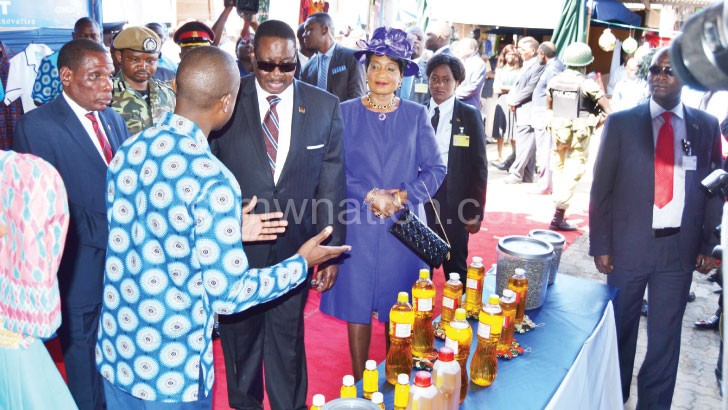Exposing the power of cooperatives
For a long time, they have been operating their business and producing goods without certification from Malawi Bureau of Standards (MBS). Among some of the objectives outlined in MBS Act is the promotion of standardisation in the commerce and industry.
In the absence of certification from MBS, there was no guarantee in terms of the quality of goods produced. This means losing out on customers and subsequently, earnings.
But who cares? They had something to do and were earning a little something by the end of the day.
Such is the story of some cooperatives that have been operating for years without being certified. But the story is now different, thanks to the Malawi Enterprise Productivity Enhancement (Mepe) project, which is part of the Common Market for Eastern and Southern Africa (Comesa) regional integration support mechanism programme funded by the European Union (EU). The cooperatives were certified under Malawi Standards.
Mepe, which has facilitated the certification of the cooperatives, addresses key productive capacity constraints among small and medium enterprises (SMEs) and cooperatives as identified in the National Export Strategy (NES)—the country’s export promotion blueprint which was launched in 2012.
The project, which falls under the Ministry of Industry, Trade and Tourism, was rolled out in the country’s villages nationwide and trained cooperatives to produce products that can be traded on the international market.

Mepe project technical manager Paul Makolosi said their first task was to work on the quality of the products by targeting the markets.
He said: “We trained them on the code of hygiene, and after that, we took them to Blantyre where they toured Sable Farming Factory, so that they could learn and experience how a modern factory operates.
“We visited MBS, they had a talk with officials from the bureau. They were taken through the process to enable them to be certified.”
Mepe has two pillars; the first is domesticating the agreement and protocol that Malawi has made under Comesa and the second is enhancing the value addition capacity of cooperatives and SMEs.
“Now, we are helping cooperatives to prepare for quality certification. It is not only the edible sector, we have textile and leather sector as well,” he said.
For the first time, products produced by these cooperatives were exhibited at the 28th Malawi International Trade Fair (Mitf) in Blantyre in May.
According to the cooperatives representative Watson Kamchiriko of Madisi Agro-Processors Cooperative Society Limited, the future looks promising after attending the fair.
“At first, we were selling sunflower to vendors, then we started processing it into cooking oil. For the days we were at the trade fair, we received orders from a number of hospitals, Limbe Police Training School and other organisations.
“We never imagined this could happen to us. This is indeed a dream come true because others have been coming to the fair to buy cooking oil from us,” he said.
Makolosi said this is an inspiring narrative and believes that the Buy Malawi Strategy (BMS) launched by President Peter Mutharika in March this year, is something that can be achieved.
“It’s not just buying Malawian, but buy quality, which we have achieved. This is an encouraging story. At the trade fair, we saw people that were interested in sunflower oil. A number of people now want to sell their sunflower to our cooperatives.
“We had good reception from wholesalers in Limbe and Blantyre. Uniforms for nurses and police officers generated a lot of interest. Also, the leather sector received a positive response. It has been an interesting journey,” he said.
Makolosi said at the beginning, it was not rosy, but there is light at the end of the tunnel.
“People are now appreciating the project’s initiative. They now realise the cooperatives can deliver and there is power in working together. This is the power of working together,” he added.
On his part, Principal Secretary in the Ministry of Industry, Trade and Tourism Cliff Chiunda said the project was created to empower cooperatives in value addition and job creation.
“This means some of the products that were being imported will be produced locally thereby creating job opportunities for Malawians and also generating foreign exchange for the country once the cooperatives start exporting.
“As a ministry, we are linking the cooperatives to various markets and we are making sure that the products are of high quality standard,” he said.





